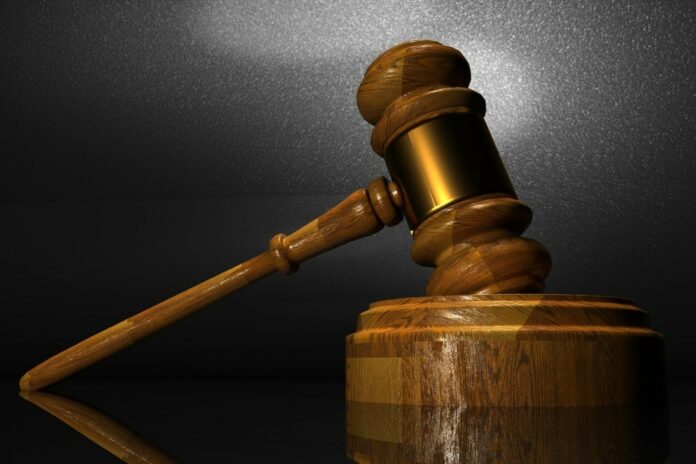Although Judge Analisa Torres has already ruled that XRP that is traded on secondary markets (crypto exchanges) should not be considered as security, the SEC’s case against Ripple is actually still open.
Indeed, the same judge found the company guilty of selling XRP on the primary market as an implied investment contract, so the court case pitting the SEC against Ripple is not yet over.
Summary
Crypto news: upcoming dates of the Ripple-SEC trial on securities
Yesterday, Wednesday 9 August 2023, a document (Pretrial Scheduling Order) was filed in which Judge Torres set the dates for the next deadlines in the case.
By 23 August the parties must submit blackout dates for the trial, and by 4 December they must file any motions in limine. Oppositions to motions in limine, on the other hand, must be filed by 18 December.
So by 4 December, the parties will have to file all the required preliminary documents, and the court will then set a final date for the pre-trial conference when a firm date for trial is set.
In fact, in order to be able to judge Ripple’s actions, Judge Torres plans to go to a full-fledged courtroom trial complete with a jury.
The start date for the courtroom trial has not yet been set, but there is speculation that it could be between 1 April and 30 June 2024.
Thus it is very unlikely that this matter will be concluded as early as this year. Moreover, not knowing a priori the possible duration of the trial, it cannot even be determined whether it will end in the second half of next year, or even in 2025.
In other words, it is highly unlikely that any conviction, or acquittal, of Ripple will come before Bitcoin halving.
Ripple and XRP
It is important to make a clear distinction between Ripple and XRP in order to have a good understanding of what is happening.
In fact, Ripple is for all intents and purposes a private company based in the US, and as such is required to comply with all the laws that all other US companies must also comply with.
Initially, the cryptocurrency it created was also called Ripple, and it was based on a totally centralized blockchain.
Later, as soon as the cryptocurrency began to be heavily accused of being too centralized, they renamed it to XRP, and made its blockchain become somewhat less centralized.
However, while on the purely technical side the XRP cryptocurrency can now be considered partially decentralized, in reality its actual use is still closely tied primarily to Ripple’s platforms.
The Ripple company in fact owns and operates all the major platforms where XRP is actually used as a trading currency, excluding of course the exchanges where it is primarily traded only to speculate on price.
So although in theory XRP could by now have a life of its own, even without Ripple, in reality without Ripple, XRP would lose much of its use, and probably its value as well.
Ripple and the SEC: the fight against crypto and securities
Yet the SEC had taken issue with both Ripple and XRP.
As for the charge by the federal agency that oversees the financial markets of security in the US, namely that XRP should be considered a security in its own right, Judge Torres proved the agency wrong.
In fact, she ruled that XRP traded on exchanges cannot be considered implicit investment contracts, because the person selling them is not the one who issued them (i.e., created out of thin air), and especially because the funds collected by the person selling them do not go to Ripple.
Instead, the issue is the sale of XRP by Ripple, i.e., the company that issued them by creating them out of thin air.
According to Judge Torres, the company financed itself in this way, meaning it used the sale of XRP to acquire money from investors. It also did so by promising these investors financial returns, and all this would constitute an implied investment contract.
Investment contracts traded on the market are considered securities, so XRP would have been sold by Ripple on the primary market as a security, while once traded by a third party on the secondary market it would no longer be considered as such.
Indeed, these two rulings constitute a defeat for both the SEC and Ripple, albeit only a partial one.
The defeat
For the SEC, this is a major defeat, because the agency was aiming for many cryptocurrencies to be deemed secure. Instead, XRP, which is one of the absolute most at risk in this respect, was found by a judge not to be definable as a security.
In the US, the SEC has no power either to make the laws or to decide how they should be applied. So the fact that it had decided to interpret the law of securities in this way, i.e., deeming XRP and other cryptocurrencies as securities, had no legal standing.
The law in the US is made by Congress, with additional government intervention, and interpretation is up to the courts. So Judge Torres’ ruling overrides the SEC’s interpretation.
It was actually a defeat for Ripple as well, because it was in fact found guilty. However, before making a judgment on how serious this ruling should be considered, it will be necessary to wait for the jury’s eventual conviction.
The only one who emerged victorious was XRP, meaning the cryptocurrency, although in the event of a heavy sentence on Ripple the project could take a very hard hit.
At this point, the crypto market seems to be safe from new attacks of this kind, while the same cannot be said of companies or private organizations that issue cryptocurrencies.




